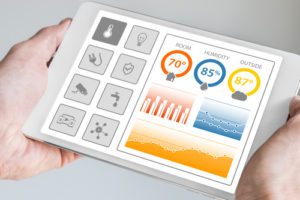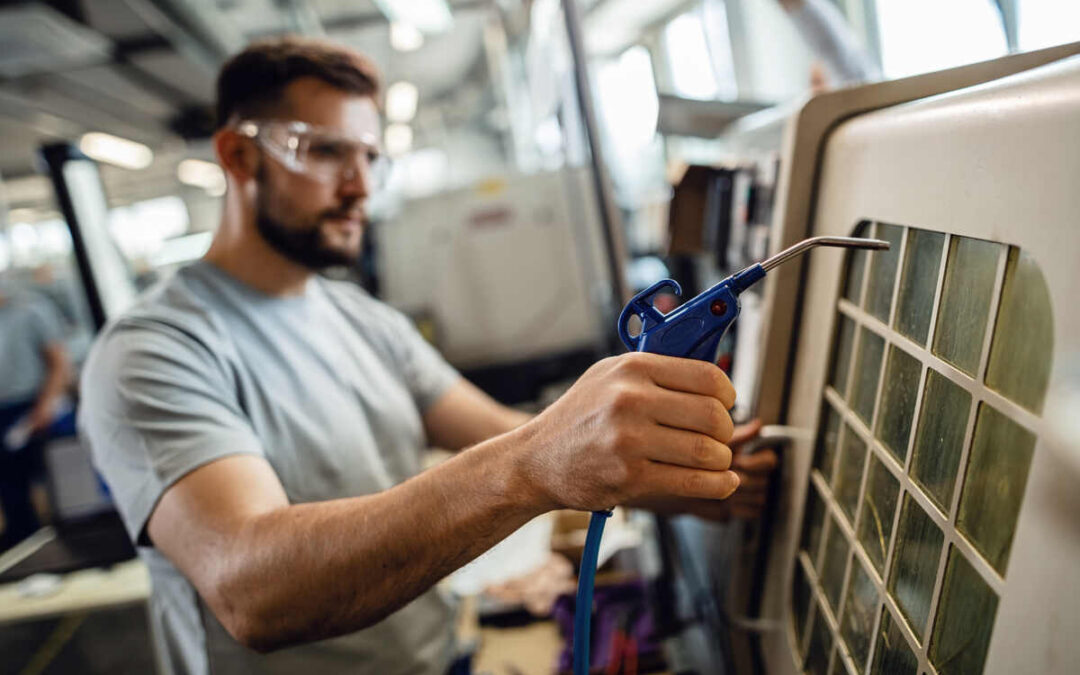We all know that increased humidity levels can be very bothersome and in some instances fatal. Hot summer weather provide the perfect atmosphere for this increase to take place. It is your duty as a homeowner to protect the lives of your loved ones by installing and maintaining an AC system in your home. Sometimes humidity can be more threatening than mere heat. Giving you more reasons to consider the services and products offered by Valley Comfort Heating and Air Conditioning.
 AC Units Are Humidity Fighters
AC Units Are Humidity Fighters
Air conditioning can assist in reducing humidity levels. One known fact to assist this claim, is that within the AC unit’s system, there is an extremely cold evaporator coil that stores water vapor from the air, as warm and humid air exhales over it. After this phase water compresses on the cold coil and runs into a drainage system below. Consequently, humidity levels are decreased in the air thus creating conditions for you to feel more comfortable.
What Not To Do
When wanting to manage humidity through the use of your air conditioner, you would need to turn down the temperature on the thermostat. This can be a major problem as your air conditioner would need to operate for longer periods.
You should never have to run your air conditioner for a tremendous amount of time in order to achieve the desired levels of cool air. This can contribute to premature wear and tear thus leaving you with increased electricity bills.
Bypass Humidifier – The Solution
If your air conditioner is not doing a great job managing humidity levels, then you would need to get a bypass humidifier for your system. This will also allow you to save some cash. Even though, the humidifier uses energy too, it still utilizes less energy than your air conditioning system. Consequently, you will discover that you may operate your air conditioner less often due to this addition. It is also important to know that you can amplify your thermostat temperature so that your humidifier can function. Contact us for more information.
Frequently Asked Questions
1. How Does an AC System Control Humidity?
Air conditioning systems do more than just cool the air; they help reduce humidity. As warm air passes over the cold evaporator coil inside your AC unit, moisture in the air condenses and is drained away. In fact, modern air conditioners can remove up to 10 gallons of water per day from the air, helping keep indoor humidity levels in check and your home more comfortable. However, for extremely humid climates, you may need additional humidity control like a dehumidifier.
2. Why Is My AC Not Reducing Humidity?
If your air conditioner isn’t lowering humidity, it might be oversized for your home, or there could be an airflow issue. A system that’s too large cools the space too quickly without running long enough to remove moisture effectively. Additionally, poor maintenance like clogged air filters can also impede airflow, reducing your AC’s ability to dehumidify. Regular maintenance checks can improve this performance by up to 15%.
3. Can High Humidity Damage My AC Unit?
Yes, high humidity levels can negatively impact your AC system. Excess moisture in the air can cause your unit to work harder, leading to mechanical strain. Additionally, the buildup of moisture inside the system can result in mold and mildew growth, which can damage components and even cause health issues for your family. Keep indoor humidity levels below 60% to maintain system efficiency.
4. What’s the Ideal Humidity Level for My Home with AC?
For optimal comfort and AC efficiency, the ideal indoor humidity level should be between 30% and 50%. Maintaining this range helps you feel cooler and prevents problems like mold growth, dust mites, and respiratory issues. According to the Environmental Protection Agency (EPA), this range also ensures that your AC doesn’t have to work overtime, potentially saving you up to 10% on your cooling costs.
5. Does Running an AC Lower Humidity in the House?
Yes, running your AC lowers humidity in your home by removing moisture from the air as part of the cooling process. However, it may not be enough in very humid climates or during extreme weather. In such cases, using a dehumidifier alongside your AC can reduce excess moisture more efficiently. In fact, dehumidifiers can improve air conditioning efficiency by up to 30%, as your AC won’t need to work as hard.
6. How Can I Improve My Air Conditioner’s Dehumidifying Performance?
You can enhance your AC’s dehumidifying abilities by ensuring it’s properly maintained. Cleaning air filters, checking refrigerant levels, and ensuring appropriate sizing for your home are crucial. Installing a bypass humidifier alongside your air conditioning system is another option to improve humidity control without overloading the AC. This solution can help reduce energy consumption by 5-15%.
7. Is a Dehumidifier Better Than an Air Conditioner for Humidity?
A dehumidifier can be more effective at reducing humidity than an air conditioner, especially in areas where the temperature isn’t very high but humidity levels are. Dehumidifiers are specifically designed to extract moisture from the air and can reduce indoor humidity by up to 50%, while also preventing mold growth and musty odors. However, an AC system provides both cooling and some dehumidification.
8. Does Running an AC All Day Affect Humidity?
Running an air conditioner all day can help manage humidity, but it isn’t necessary to run it constantly. Setting your thermostat to a consistent temperature and using energy-efficient models with built-in dehumidification features can keep indoor air balanced. Excessive use of your AC, on the other hand, can lead to higher energy bills, so using it wisely with a smart thermostat can save you up to 10-12% annually on energy costs.
9. Can Air Conditioners Make the Air Too Dry?
Yes, air conditioners can make the air feel too dry, especially in areas where the humidity is already low. When indoor humidity levels drop below 30%, it can lead to issues like dry skin, throat irritation, and even static electricity. If you experience this, consider using a humidifier in conjunction with your air conditioner to maintain a balanced indoor atmosphere.
10. What Is the Role of a Bypass Humidifier with an AC System?
A bypass humidifier works by adding moisture back into the air during the heating process, which can also balance humidity levels when used with an AC system. This is especially useful in regions with dry climates or during colder months when indoor air tends to become too dry. Installing a bypass humidifier can reduce the strain on your AC system and even lower your overall energy use.



